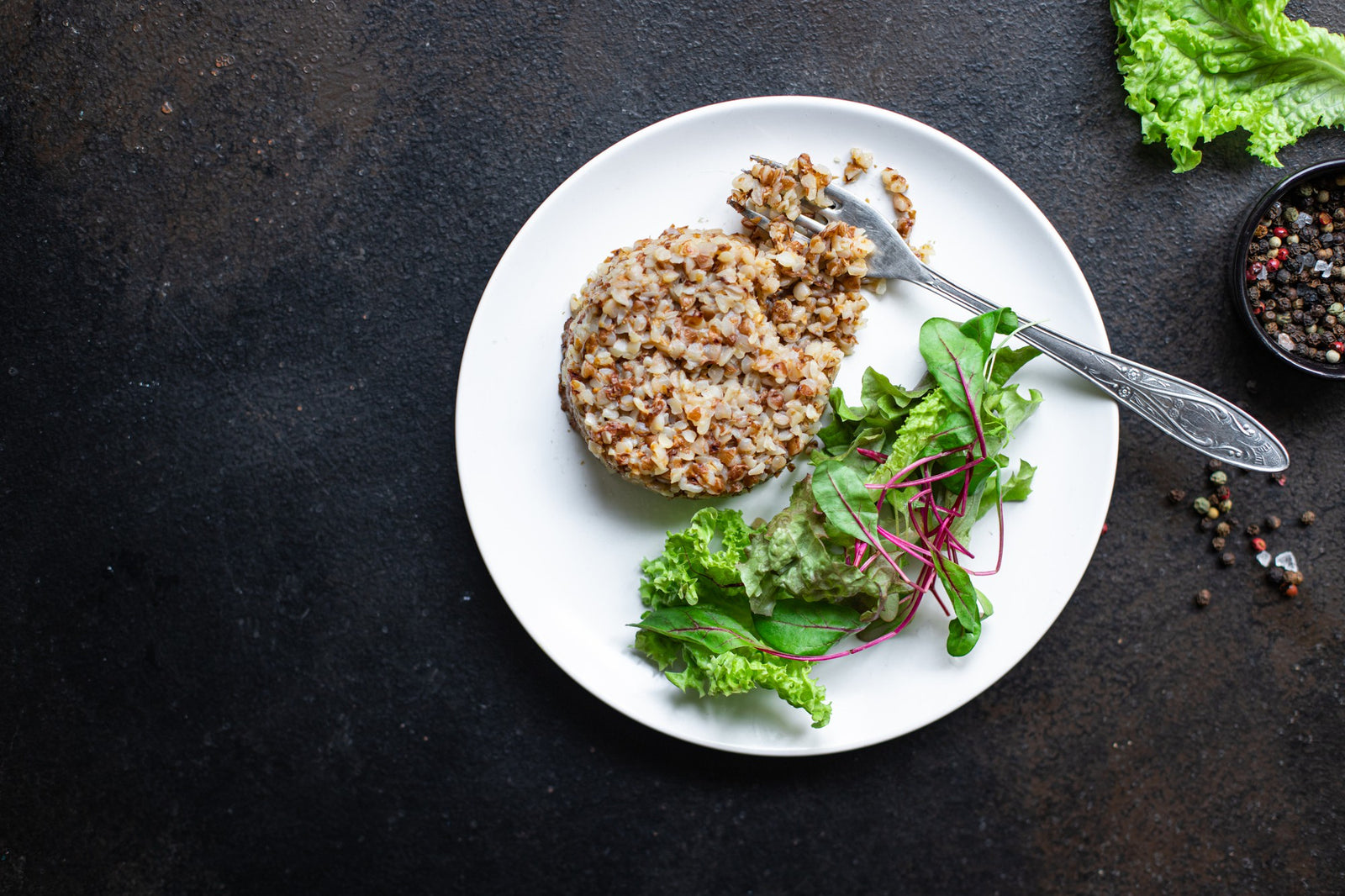
January 05, 2024 3 min read
Buckwheat, a versatile and nutritious grain, offers two delightful varieties: raw groats and toasted kasha. These organic variations not only differ in appearance but also in taste, nutritional value, and culinary applications. Let's delve into the characteristics and benefits of each, exploring how they can enhance our meals and contribute to a healthier lifestyle.
Understanding Raw Buckwheat Groats
Description: Raw buckwheat groats, with their pale color and mild taste, serve as a versatile foundation for a range of dishes.
Nutritional Value: Highlighting the rich nutritional content of raw buckwheat, focusing on its protein, fiber, vitamins, and minerals. Emphasizing its gluten-free nature and benefits for heart health and digestion.
Culinary Uses: Exploring the various ways raw groats can be used in recipes, from breakfast porridge and salads to baked goods, showcasing their adaptability and nutritional contribution to a balanced diet.

Exploring Organic Kasha (Toasted Buckwheat Groats)
Description: Introducing kasha, the toasted variety of buckwheat known for its deeper color and robust, nutty flavor.
Nutritional Value: Comparing the nutritional profile of kasha to raw buckwheat, highlighting how the toasting process affects its nutrients and antioxidants. Stressing its benefits for heart health, digestive system, and its rich source of essential minerals.
Culinary Uses: Showcasing how the toasting process enhances the flavor of kasha, making it ideal for savory dishes like pilafs, side dishes, and stuffing. Highlighting its role in adding depth and earthy tones to various recipes.
Comparative Analysis: Raw vs. Toasted Buckwheat
Flavor Profiles: Detailing the taste differences between raw and toasted buckwheat, explaining how toasting brings out a more pronounced, nutty flavor in kasha compared to the mildness of raw groats.
Nutritional Comparison: Conducting a side-by-side nutritional analysis of raw and toasted buckwheat, elaborating on how toasting affects the nutrient composition while retaining its health benefits.
Culinary Adaptability: Discussing the strengths of each variety in different recipes, guiding readers on when to use raw groats or kasha to maximize flavor and nutritional value in meals.
Health Benefits of Organic Buckwheat Varieties
Digestive Health: Exploring the high fiber content in both raw and toasted buckwheat and how it aids in digestive wellness, promoting regularity and supporting gut health.
Heart Health: Detailing the role of buckwheat in managing cholesterol levels, reducing the risk of heart disease, and supporting overall cardiovascular health due to its rich nutrient profile.
Gluten-Free Nature: Reinforcing the gluten-free status of buckwheat and its suitability for gluten-sensitive diets, offering a nutritious alternative to wheat-based grains.
Cooking Tips and Recipes
Cooking Techniques: Providing step-by-step guidance on cooking raw buckwheat and kasha to achieve optimal texture and flavor, emphasizing the importance of rinsing and toasting.
Delicious Recipes: Offering a collection of easy-to-follow recipes showcasing the versatility of both raw and toasted buckwheat, ranging from breakfast dishes, such as buckwheat pancakes and granola, to savory meals like buckwheat pilaf and kasha-stuffed vegetables. Including a selection of desserts like buckwheat chocolate cake or kasha pudding, highlighting the diversity of these grains in the kitchen.

Conclusion
Summarizing the distinct characteristics and nutritional benefits of raw and toasted buckwheat varieties, urging readers to incorporate these nutritious grains into their diets. Encouraging experimentation in the kitchen and embracing the unique flavors and health advantages that raw groats and kasha offer.
❤ Try our USDA certified Raw Buckwheat Groats❤
Related Blogs:
Related Recipes
Comments will be approved before showing up.

January 27, 2025 3 min read
Flaxseed, the tiny yet powerful superfood, is packed with nutrients that can support weight loss. From curbing hunger to stabilizing blood sugar, this guide dives into the science of how flaxseed can help you shed those extra pounds.

December 11, 2024 3 min read
Discover three quick and easy soup recipes featuring organic small red beans. From a classic vegetable soup to a creamy potato blend, these wholesome recipes are perfect for chilly days and busy weeknights. Packed with flavor and nutrition, these soups will warm your heart and soul this winter!

December 06, 2024 3 min read
This vibrant and nutritious Green Lentil Salad combines tender lentils with grilled chicken, fresh vegetables, and a zesty lemon dressing. Packed with protein, fiber, and essential vitamins, it’s the perfect healthy meal for any time of day.
© 2026 Be Still Farms- Real, Fine Organics.
Privacy | Terms | Refund Policy | Organic Certification
